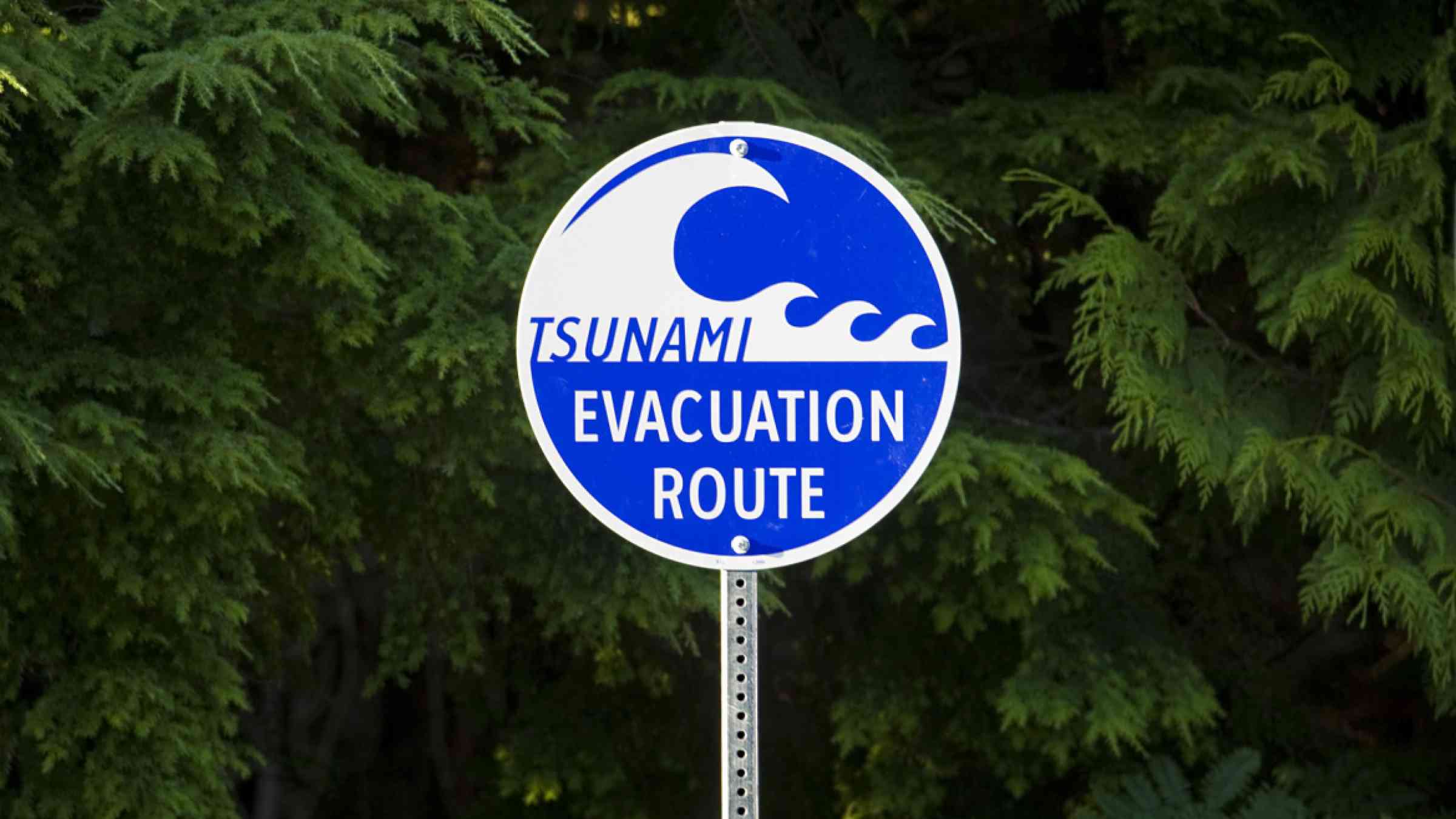World Tsunami Awareness Day 2022 in Asia-Pacific: Early Warning and Early Action Before Every Tsunami

The video recording is now available.
Time
9:00 am – 10:00 am (Bangkok)
Venue
United Nations Conference Centre, Bangkok, Meeting Room-H
Background
By the year 2030, an estimated 50 percent of the world's population will live in coastal areas exposed to flooding, storms, and tsunamis (UNESCO-IOC, 2021). Scaling up regional support to developing countries will help ensure that 100% of communities at risk of tsunami are prepared for and resilient to tsunamis by 2030. The trillions of dollars that are needed to achieve the Sustainable Development Goals – particularly in these contexts – must be invested in a risk-informed and resilient manner lest these investments end up as disaster risk and losses.
The Asia and Pacific is one of the most tsunami-affected regions in the world. The January 2022 Tonga tsunami event, triggered by a Hunga Tonga- Hunga Ha’apai submarine volcanic eruption, demonstrated the multi-hazard nature of risks and how their impacts can cascade through multiple chains affecting directly exposed communities and their livelihoods. It also triggered national and global disruptions in the telecommunication system as a critical cluster of submarine fiber-optic cable was affected. The telecommunication outage experienced in Tonga compounded the challenges faced by affected communities, hampering the coordination of relief efforts, and making it close to impossible to send vital updates. The memory of tsunamis with large death tolls like the 2004 Indian Ocean earthquake and tsunami is still vivid among those impacted communities. Affected countries like Indonesia, Thailand, Japan and the Maldives often cultivate a culture of memory and learning from past experiences.
Objectives
The objective of this regional event is to commemorate WTAD by highlighting good practices, learning from examples of successful cooperation in the Asia-Pacific region around partnerships and data-related initiatives, strengthening the effectiveness of early warning systems and their ability to foster preparedness and enhance resilience to tsunamis, notably:
- Strengthening the Indian Ocean Tsunami Warning and Mitigation System (IOTWMS) and the Tsunami Ready program under the Intergovernmental Oceanographic Commission (IOC) of the UN Education, Science and Cultural Organization (UNESCO).
- Ongoing initiatives like the UNESCO IOC project "Strengthening Tsunami Early Warning in the North West Indian Ocean Region through Regional Cooperation" supported by the ESCAP Trust Fund for Tsunami, Disaster and Climate Preparedness.
- Government of Japan funded UNDP regional project on "Strengthening School Tsunami Preparedness" implemented in 24 Asia-Pacific countries since 2017, including Fiji, FSM, Kiribati, Palau, PNG, RMI, Samoa, Solomon Islands, Tonga, Tuvalu and Vanuatu, with the purpose of strengthening awareness and preparedness of tsunami-prone schools and showcasing results at national, regional and global level every year.
- Initiatives in Pacific Islands and Asia to promote greater inclusion for access to tsunami warning and risk information, to strengthen preparedness at all levels through disaster preparedness, including Comprehensive School Safety initiatives.
Participants and Format
Member States, civil society, stakeholder groups, regional organizations, academia, the scientific community, the private sector, and other stakeholders will be invited to attend the hybrid event in Bangkok and online.
Programme
- Ms. Mami Mizutori, Special Representative of the United Nations Secretary-General for Disaster Risk Reduction and UNDRR Head (Video Message)
- Mr. Marco Toscano-Rivalta, Chief, United Nations Office for Disaster Risk Reduction Regional Office for Asia and the Pacific (UNDRR-ROAP)
- Mr. Rick Bailey, Head of Secretariat, IOC-UNESCO Indian Ocean Tsunami Warning and Mitigation System
- Mr. Itesh Dash, Team Leader for Systems Research and Development, Regional Multi-Hazard Early Warning System (RIMES)
- Ms. Litea Buikoto, Disaster Risk Team Leader, The Pacific Community (SPC)
- Dr. T. Srinivasa Kumar, Director, Indian National Centre for Ocean Information Services (INCOIS)
- Video Message from Tonga National Emergency Management Office (NEMO)
- Ms. Aileen Mikel, Chief, Division of School Operations Management, Palau Ministry of Education on Tsunami Risk and Comprehensive School Safety in the Pacific and Video
- Q&A
- Ms. Armida Salsiah Alisjahbana, Under-Secretary-General of the United Nations and Executive Secretary of the Economic and Social Commission for Asia and the Pacific (ESCAP)
- Mr. Yuichi Oba, Minister and Deputy Chief of Mission, Permanent Representative to ESCAP, Embassy of Japan in Thailand
Is this page useful?
Yes No Report an issue on this pageThank you. If you have 2 minutes, we would benefit from additional feedback (link opens in a new window).